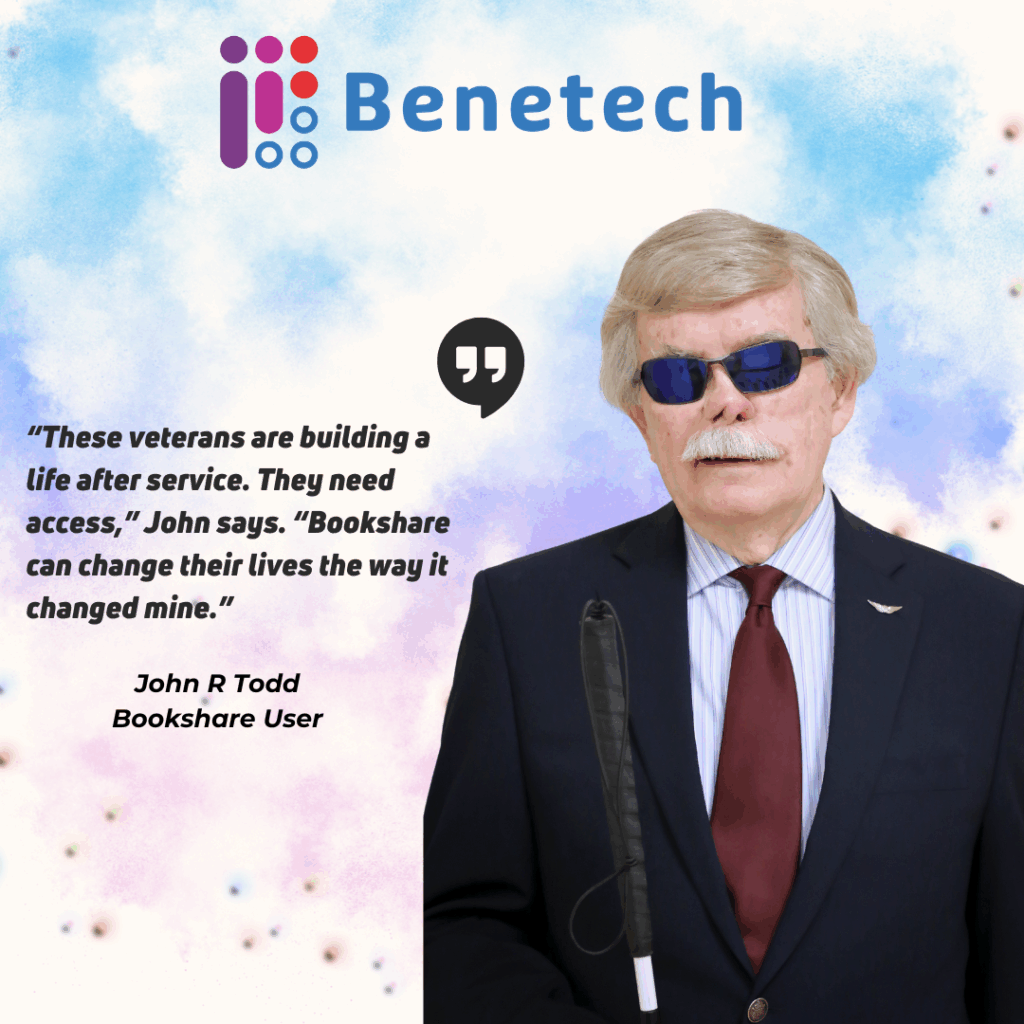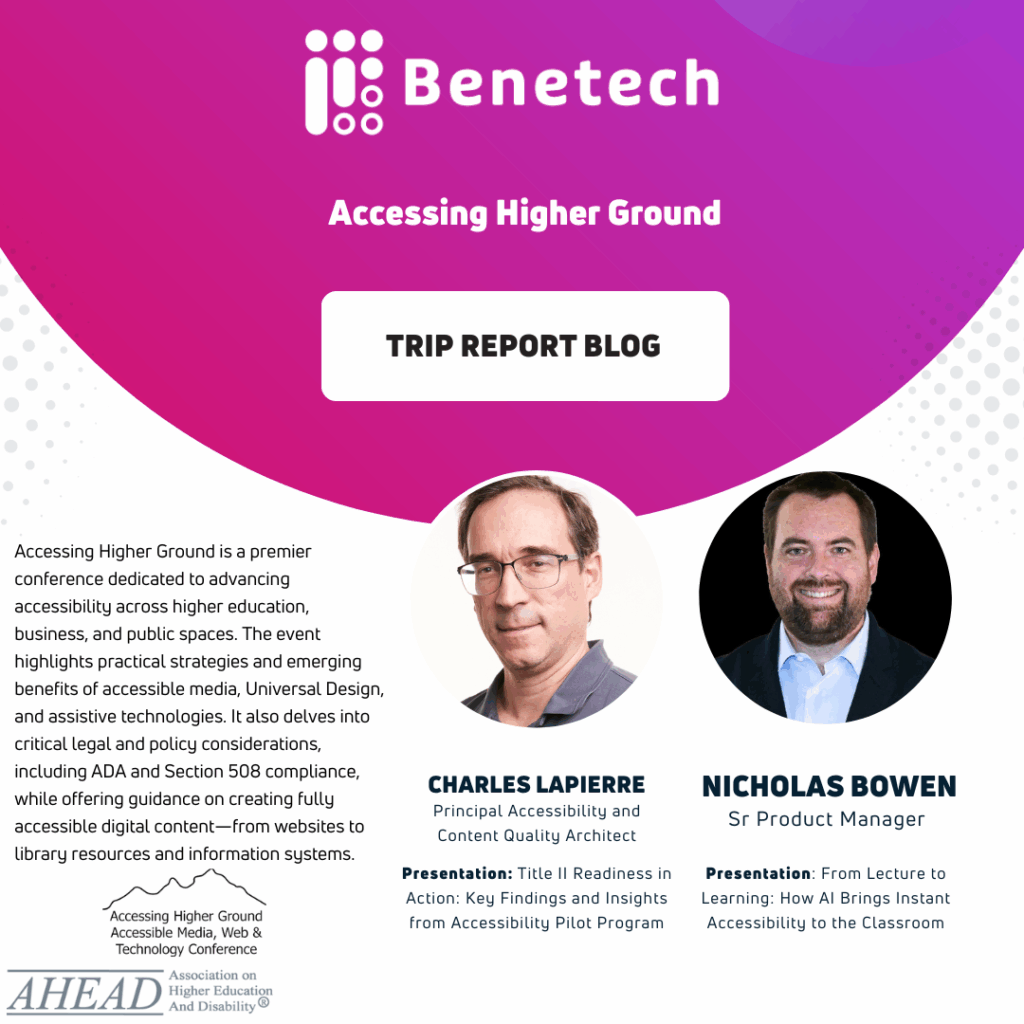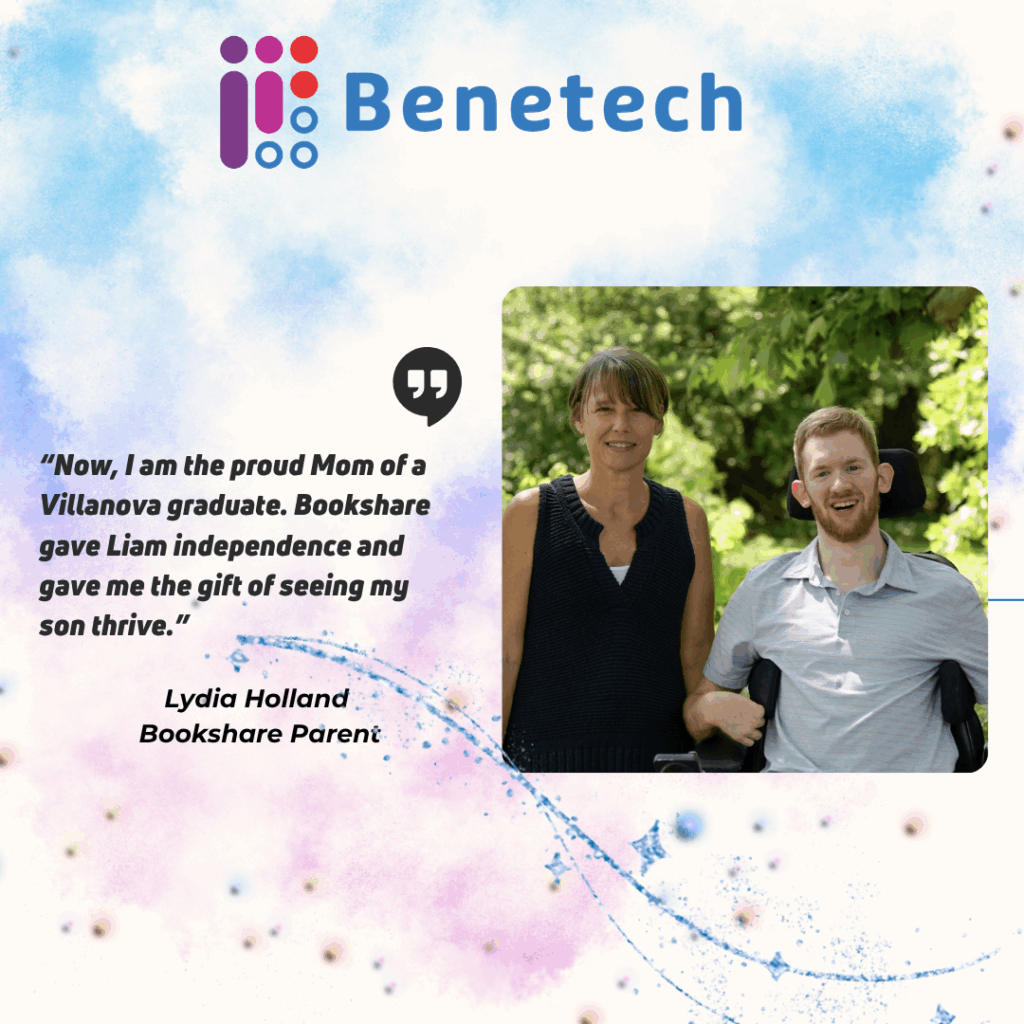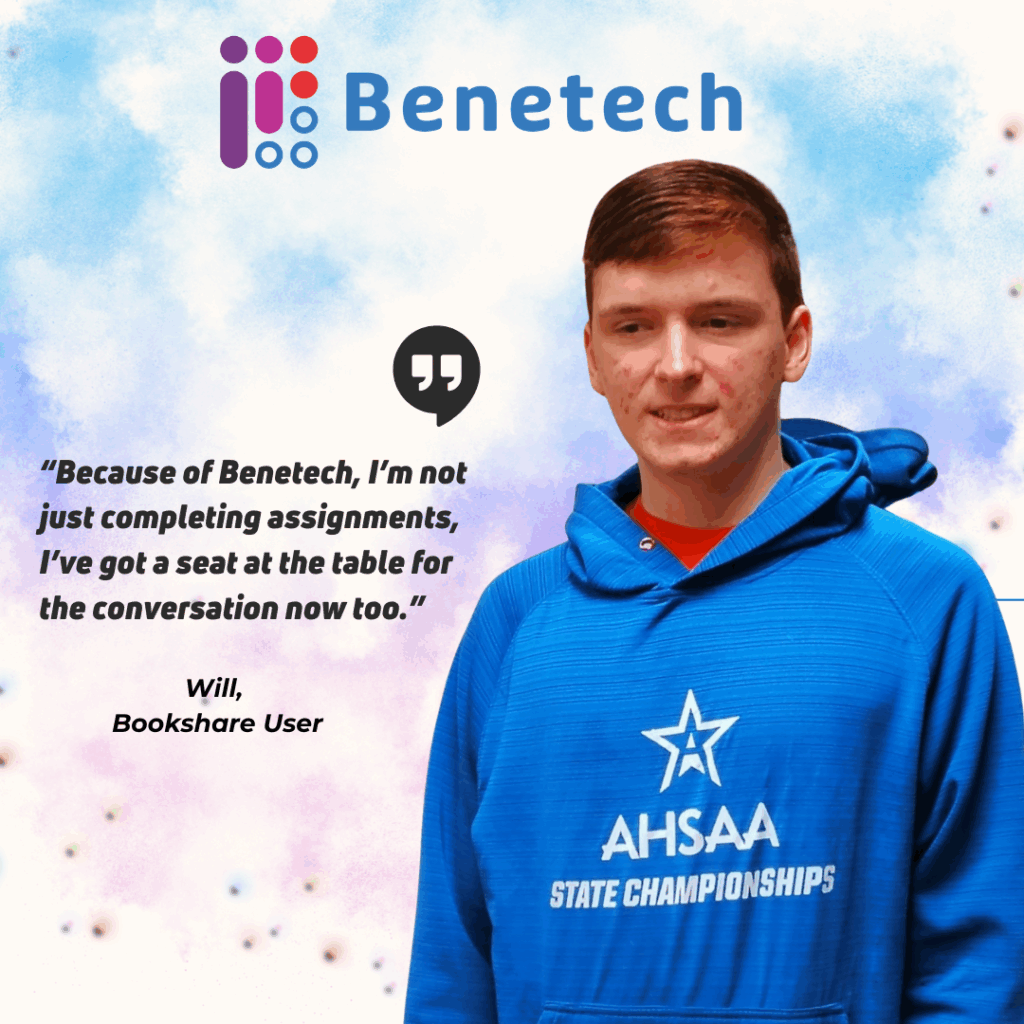George Kerscher Joins Benetech as Senior Advisor for Global Literacy
How Benetech is supporting a life of service

Inside AHG 2025: Innovation, Energy & Accessibility Leadership in Action

A Gift for the Whole Family

Off to the Races with Bookshare

Blogs
-
Benetech Wins Skoll and UN Foundation Award to Bring Books to People with Print Disabilities in India
We are delighted to share that the Skoll Foundation and the United Nations Foundation awarded Benetech a grant to bring…
-
Advancing Inclusive Education and Equal Opportunity with Accessible eBooks
Rapid changes in the fields of consumer technology, education, and publishing make it possible to address the needs of the…
-
India-West Highlights Benetech’s New USAID Grant to Improve Literacy for Children Who Are Blind in India
More than 250 million children around the world cannot read or write, representing “a quiet crisis that is casting entire…
News
Benetech is in the news! Check out our press coverage and recent Press Releases.
As seen in…








Recent highlights
2025
- NACD, Directorship Magazine: A Thoughtful Risk Taker, Meet the 2025 NACD Directorship 100™ Nonprofit Director of the Year, Theresa Fay-Bustillos, and learn more about her unwavering commitment to morals and mission.
- District Administration: Digital accessibility deadlines are coming: Why every school district must act
- Eyes on Success Podcast: 2512 Benetech Celebrates 25 Years of Making Books Accessible for Everyone (Mar. 19, 2025)
- Forbes: Accessibility 100
- GovTech: AI to Make STEM Content for Neurodivergent Learners
- K-12 Dive: Why Congress should protect smart federal supports for students with disabilities
- K-12 Dive: How IDEA sparked innovations for students with — and without — disabilities
- Publisher Perspectives: Accessibility: S&S Earns Benetech’s GCA Certification
- Publisher’s Weekly: Amazon Adds Benetech Accessible Metadata to E-books
- The 74: Ed Tech Can Unlock STEM Potential of Students With Disabilities — If It’s Funded
2023
- Business Mirror: An ebook Library for Those with Reading Barriers
- School Library Journal: Serving Blind and Low-Vision Children Well Benefits All Students. Here Are Suggestions.
- Publisher’s Weekly: Lerner Publishing Group’s New Partnership Centers Accessibility
- Publishing Perspectives: Pearson Named A Benetech Global Certified Accessible Publisher
- National Federation of the Blind (NFB): Getting Books on Time with Bookshare
- BBC News: Visually-impaired Nottingham Law Student Praises Book Scheme
2022
- Government Technology: DoE Grant to Fund Digital Materials for Disabled Students
- Forbes: How AI Is Being Used To Help Blind Students ‘Visualize’ Graphs And Charts
- K-12 Dive: Nonprofit Uses AI to Make STEM Materials More Accessible
- Edutopia: Tools for Supporting Students With Reading Disabilities
- Eyes on Success Podcast: 2214 Bookshare Reader for Smart Speakers
- AppleVis Podcast: AppleVis Extra #85: Hema Natarajan Discusses the Upcoming Bookshare Reader Suite for Web, Mobile, and Smart Speaker
- Duke Fuqua Center for Advancement of Social Entrepreneurship: Why We’re Excited About Benetech’s Impact Potential
- K-12 Dive: 3 Inclusive Education Myths Busted